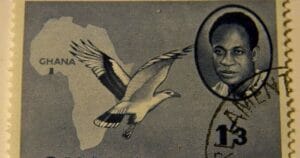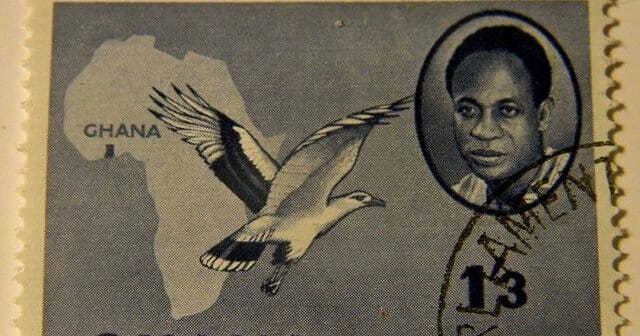

In the spirit of the Arusha Declaration and the Porto Alegre Declaration we have come together in Dakar from all corners of the world to face a world in crisis under the theme of African Economic and Monetary Sovereignty.
We are a group of scholars, policy-makers, and activists from Africa, Asia, Europe and North America, some of us economists, others political scientists, historians, sociologists and anthropologists. We address this declaration to African governments, African institutions and external actors and agencies that constrain Africa’s economic and monetary sovereignty.
Our existing international economic order is at the heart of the contemporary crises. The Global South suffers disproportionately from these multiple crises. Africa’s adverse incorporation into the capitalist order is the problem. We are integral to the system which could not thrive without our exploitation. We dissent from the dominant paradigm in economics which conceptualizes the economy in almost quasi-natural terms and describes a benign world devoid of unequal power relations.
Our global crises are multifaceted: climate breakdown, biodiversity depletion, pollution, speculative finance, war, and rampant inequalities. There is a general crisis of the neoliberal capitalist order with a turn to a resistant form of imperialism. Geopolitical turmoil is a dangerous symptom of both.
We do not accept this set of crises but confront and seek alternatives to it in solidarity with workers, the landless, peasants, women, climate activists and similar groups. For these reasons, we launch the Dakar Declaration with the aim of initiating lasting and trusting cooperation with initiatives and movements that share Share A unit of ownership interest in a corporation or financial asset, representing one part of the total capital stock. Its owner (a shareholder) is entitled to receive an equal distribution of any profits distributed (a dividend) and to attend shareholder meetings.
its spirit.
Ten strategic aims serve as our yardstick for action:
- Most of our governments will not implement the transformations we need. We need to become the masses that always push for more.
- Yet, we need strong states, democratic and responsible states. But even more than that, we need stronger peoples to defend those states and push them to always do more for the majority. African states can and should mobilize African labor and resources to meet Africa’s own needs, resuscitating the developmental ambitions of the early post- independence period.
- With a world breaking apart into more regional trade blocs, building regional alliances becomes necessary and possible. The reassertion of our economic and monetary sovereignty and the subjection of foreign interests to our internal needs and interests becomes easier. This growth in policy sovereignty to structurally transform our economies and societies can enable us to fundamentally tackle long standing issues of poverty, social development, and democratization.
- We must work to build a new multilateralism where global policy fora and institutions are inclusive, democratic, and reflective of the concerns of the Global South’s populations.
- Militarism and imperialism cannot continue to politically mould the world system. We defend a positive neutralism with respect to the historic colonial-imperial bloc, and non-cooperation with their interference in African affairs.
- Global inequalities arising from ecological breakdown and exposure to volatilities in finance and commodity prices put the Global South at a particular disadvantage which we need to overcome.
- Recurrent debt crises have to end. We need to develop a global approach to correct the harmful impact of excessive foreign currency debt — including that issued by the IMF IMF
International Monetary Fund Along with the World Bank, the IMF was founded on the day the Bretton Woods Agreements were signed. Its first mission was to support the new system of standard exchange rates.When the Bretton Wood fixed rates system came to an end in 1971, the main function of the IMF became that of being both policeman and fireman for global capital: it acts as policeman when it enforces its Structural Adjustment Policies and as fireman when it steps in to help out governments in risk of defaulting on debt repayments.
As for the World Bank, a weighted voting system operates: depending on the amount paid as contribution by each member state. 85% of the votes is required to modify the IMF Charter (which means that the USA with 17,68% % of the votes has a de facto veto on any change).
The institution is dominated by five countries: the United States (16,74%), Japan (6,23%), Germany (5,81%), France (4,29%) and the UK (4,29%).
The other 183 member countries are divided into groups led by one country. The most important one (6,57% of the votes) is led by Belgium. The least important group of countries (1,55% of the votes) is led by Gabon and brings together African countries.http://imf.org
— and odious debts. Widespread, deep, and swift debt write-downs are essential. They must be focused on supporting economic transformation. - We need to stop the ongoing theft of wealth, committed by transnational corporations (TNCs), which flows into the Global North when TNCs transfer their earnings in tax havens and then invest them in financial markets, all this clothed in the harmless language of “Foreign Direct Investment”. To that end, measures such as capital controls, restrictions on tax evasion and illicit financial flows and fair taxation of TNCs must be actively promoted and implemented.
- We have to tackle historically persistent inequalities rooted in the emergence and global expansion of the capitalist system. We also need a global reparations agenda to address in a fair manner the multifaceted ecological crisis. We must seek to elaborate this agenda technically, legitimize it, advocate it, defend it, and implement it. We support the efforts of our African American and Caribbean sisters and brothers in their specific labors for reparatory justice.
- We act, teach, research, and mobilize in our local and national contexts, regionally and transnationally. We do these with the aim of building a lasting movement and acquire real influence in our political processes.
We are calling for a Pan-African, South-South cooperation and global solidarity for our collective cause. We invite you all to our gatherings during which we share our experiences, evaluate our progress, and plan the next steps.
The time is now!
Signatories
Charles Abugre, Ghana
Broulaye Bagayoko, Mali
C.P. Chandrasekhar, India
Demba Moussa Dembélé, Senegal
Daniela Gabor, Romania/United Kingdom
Eric Toussaint, Belgium
Nancy Kachingwe, Malawi/Zimbabwe
Jomo Kwame Sundaram, Malaysia
Ismaïla Malick Sy, Senegal
Ndongo Samba Sylla, Senegal
Lisa Tilley, United Kingdom
Souad Aden-Osman, Ethiopia
Max Ajl, Tunisia/USA
Alexandre Abreu, Portugal
Asghar Adelzadeh, South Africa/USA
Dereje Alemayehu, Ethiopia/Germany
Ikal Angelei, Kenya
Hanene Bergaoui, Tunisia/Germany
Horman Chitonge, South Africa
Carla Coburger, Germany
Caroline Cornier, Germany/France
Ndeye Fadiaw Diagne, Senegal
Dialo Diop, Senegal
Henriette Faye, Senegal
Andrew Fischer, Netherlands
Maha Ben Gadha, Tunisia
Hamza Hamouchene, Algeria/United Kingdom
Jason Hickel, United Kingdom
Nimi Hoffmann, United Kingdom/South Africa
Tetteh Hormeku, Ghana
Florian Horn, Germany/Belgium
Peter James Hudson, USA
Fadhel Kaboub, Tunisia/USA
Mary Karimu, Ghana
Rasmane Kientega, Burkina Faso
Ingrid Kvangraven, Norway/United Kingdom
Kai Koddenbrock, Germany
Imen Louati, Tunisia
Jamee Moudud, USA
Godwin Murunga, Kenya/Senegal
Fathimath Musthaq, Maldives/USA
Alvin Mosioma, Kenya
Kaba Nabe, Guinea
Redge Nkosi, South Africa
Jane Obuchi, Kenya
Franklin Obeng-Odoom, Ghana/Finland
Adebayo Olukoshi, Nigeria/South Africa
Keston Perry, Trinidad and Tobago/USA
Lebohang Liepollo Pheko, South Africa
Stefano Prato, Italy
Matthew Robinson, USA
Chafik Ben Rouine, Tunisia
Arif Rüzgar, Germany/Belgium
Ebrima Sall, Senegal
Matthias Schmelzer, Germany
Jean-Michel Servet, France
Howard Stein, USA
Crystal Simeoni, Kenya
Fiona Tregenna, South Africa
Dzodzi Tsikata, Ghana/United Kingdom
